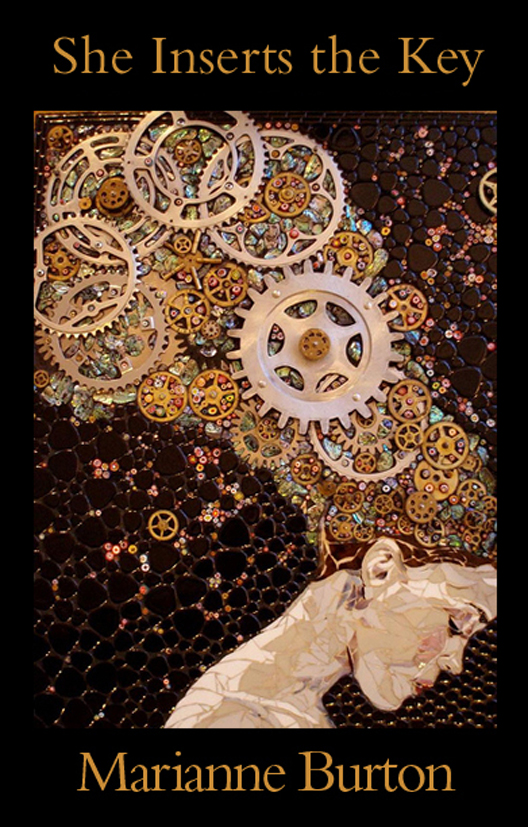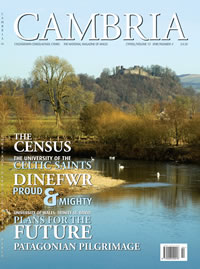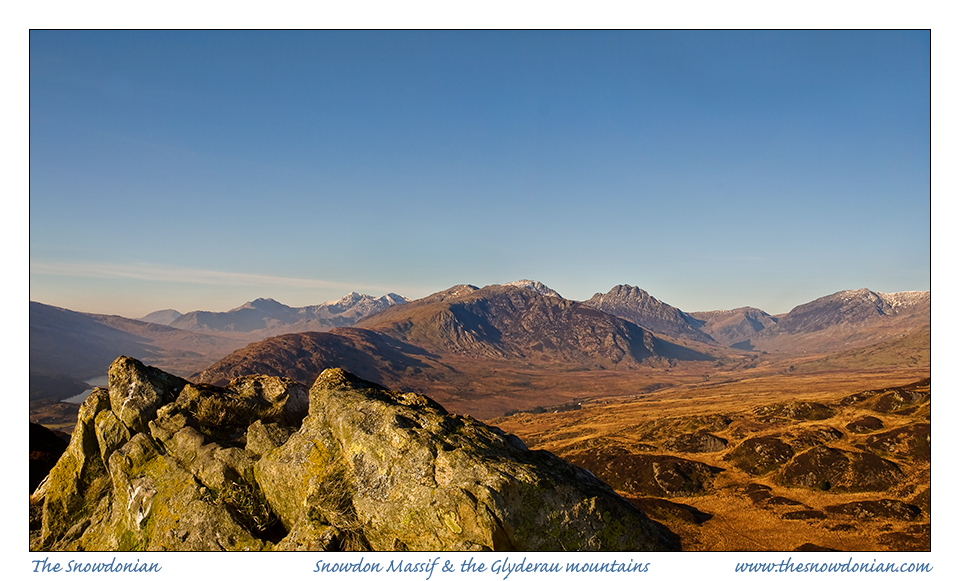Blogs
One of the top news stories today is the collapse of a trial in London simply because the jury did not seem to understand "the basis of trial by jury and simple legal concepts". At first I thought it might be because both sides had not presented the case sufficiently well but, having read some of the questions asked by jurors, it became clear that at least some of them hadn't any idea of how a court works!
In the light of the collapse, all the usual arguments against jury trial are coming out of the woodwork again.
Tempus fugit in a most frightening way and it is now many years since I did my jury duty but it remains the best job I ever had. I received a letter calling me to jury duty in November of one year and was obliged to go to the Old Bailey in the following January. First of all everyone had to negotiate the security arrangements at the door but the security people were cheerful and pleasant. Inside, I suddenly felt rather lonely and overwhelmed despite all the other people who had been called in the same way.
I was called to be a juror on a fraud trial and asked by bewigged and gowned men whether I was willing to give up possibly 6 months of my life to do this. I said that I would do so. There was much discussion regarding someone else who said that they could not do it as they were afraid of losing their job; prosecuting counsel and the judge made it clear that sacking someone from their job in those circumstances was against the law but everyone had the opportunity to back out.
Returning to my own job that day, I explained the situation and my employer (an apoplectic man at times) went through the roof and that could be a frightening experience, believe me. As I loathed him, I dug in my heels and decided there and then I was not going to give in.
The jurors chosen had to return to the court to confirm that they would be taking part; I sent the judge a note about my employer's reaction and said that my boss would likely be sending him a letter by courier at that very moment about it. To be honest, I can't remember whether the letter arrived or not but the judge and prosecuting counsel, after some discussion, very kindly asked me to make the decision about whether I wished to continue. I said that I wouldn't be bullied and that I would carry on.
The jury for the fraud trial ranged from a young lad of about 19 to a cheery pensioner and all ages in between. I recall a London cabbie amongst the twelve. I think it fair to say that we were all reasonably intelligent and understood the basics of what was required.
The trial took place in a modern annexe to the Old Bailey where we had a comfortable room. We organised a kettle, teabags etc. and made ourselves a home from home for the next 6 months. Fortunately, we got along very well and all had a sense of humour. The court Clerk and usher were enormously helpful and kind too.
Obviously, I cannot say anything about what was discussed in the jury room or how we came to our decisions, but watching how a court works and observing how a clever QC can manipulate a hostile witness was a fascinating experience. The case involved an enormous amount of money but, at the very start, we were told that if we could understand a bank statement and balance a cheque book, we would have no problem understanding the prosecution's case. And so it turned out. At the end of the case, the judge said that the prosecution's presentation should serve as a model for other fraud cases and he was very complimentary to us also. At all times, we had been treated with respect. We were also told that we would not need to do jury duty again, having given so much of our time.
By the way, I returned to my job and my boss bided his time; he allowed a few months to pass before giving me notice! It was a relief actually, as I hated the job almost as much as I loathed him.
RICHARD TREVITHICK
On this day in 1804, the first steam train made its maiden journey, from Penydarren Ironworks to Abercynon
Samuel Homfray, the owner of the Penydaren Ironworks tasked Richard Trevithick his mechanical engineer to produce a steam locomotive to transport the produce of the ironworks. Homfray was so impressed with Trevithick's design that he placed a wager with Richard Crawshay that it could haul ten tons of iron from Penydarren Ironworks to Abercynon, a distance of 9.75 miles (16 km).
On the morning of 21 February 1804, Trevithick's locomotive successfully completed the journey in 4 hours and 5 minutes, reaching a top speed of nearly five miles an hour and this became the World's first locomotive-hauled railway journey. There is a monument dedicated to Trevithick's locomotive in Merthyr and a full-scale working reconstruction of it can be seen at National Waterfront Museum in Swansea where several times a year it is run on a 40m length of rail outside the museum.
GEOFFREY OF MONMOUTH
On 21st February 1152 Archbishop Theobald consecrated Geoffrey of Monmouth as bishop of St Asaph. Geoffrey, whose work is generally accepted as establishing the myths surrounding King Arthur and Merlin, was probably born sometime between 1100 and 1110 in Wales or the Welsh Marches.
He was a cleric and author, who is best known for his chronicle Historia Regum Britanniae ("History of the Kings of Britain"), which was widely popular in its day and was credited well into the 16th century. It is now however acknowledged by many modern historians as containing little reliable history.
CHARLOTTE CHURCH
Born this day 1986, in Llandaff.
Charlotte Church, who came to public notice when she made an impromptu appearance on "The Big Big Talent Show" in 1996, she came on to say a few words about her aunt, who was also making an appearance on the show, and was asked her to sing. She stole the show and immediately became an overnight sensation.
More television and concert appearances followed, such as those at Cardiff Arms Park, the London Palladium, the Royal Albert Hall, and opening for Shirley Bassey in Antwerp. She was signed to Sony Music (UK) and has released three best-selling albums of popular classics and at 12, she was the youngest person at no. 1 in the classical charts with the release of her album, Voice of an Angel.
.
SIR WILLIAM GOSCOMBE JOHN
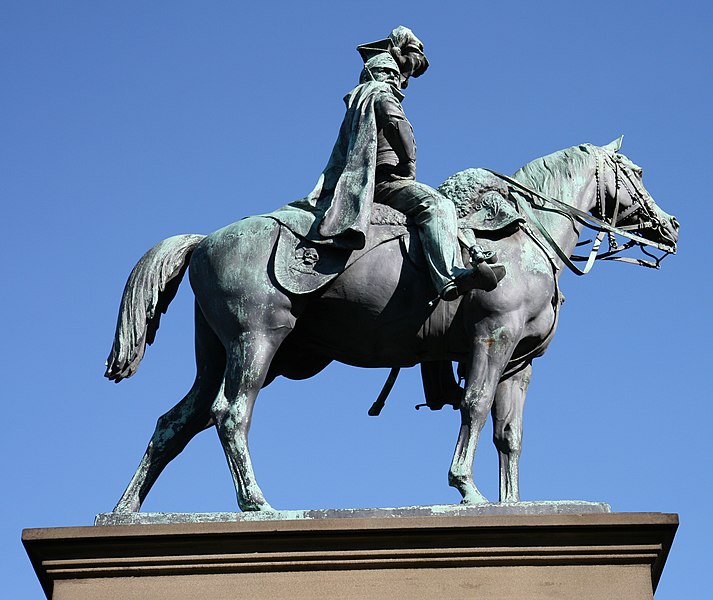 Born on this day 1860 in Canton, Cardiff.
Born on this day 1860 in Canton, Cardiff.
Sir William Goscombe John - greatly respected sculptor who made several public monuments, memorials and statues of public figures, including the memorial at Port Sunlight to the employees of Lever Brothers Ltd who died during the First World War.
BORN THIS DAY - TITUS LEWIS
Born on this day 1773 in Cilgerran, Pembrokeshire.
Titus Lewis - a Baptist minister and writer, who is notable for the publication of A Welsh-English Dictionary as well Hanes Prydain Fawr (a History of Great Britain) and several hymns and biblical commentaries, including, along with Christmas Evans, a translation of Gill's commentary on the New Testament into Welsh.
Living in Wales by David Hurn named in the best top 50 Black + White Photography books
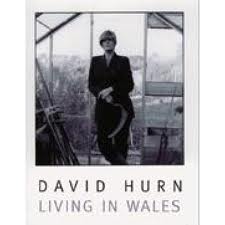 Black + White Photography magazine have named Living in Wales by Magnum photographer David Hurn in their top 50 black and white photography books. Black + White Photography magazine have named Living in Wales by Magnum photographer David Hurn in their top 50 black and white photography books.Living in Wales is an album of one hundred and one duotone portraits of people who, in the words of David Hurn have enriched my life and that of Wales. It is a roster of the famous and distinguished in the fields of science, business, the arts, sport, the law, health, media, politics and religion. ISBN: 1854113399 Hardback 25.00 |
Seren author Cynan Jones long-listed for the Sunday Times Short Story Award.
| Bird Blood Snow is available from the Seren website for 8.99 No matter how you build them, the world will come crashing against your fences. |
| Christopher Meredith has a new poetry collection Air Histories out with Seren in June 2013. Seren published his fourth novel The Book of Idiots in 2012, described by the ShortList Magazine as "...a darkly comic triumph full of uncomfortable truths" |
Douglas Houston 1947-2013
We were sad to hear of the death of the fine poet Douglas Houston and thank his widow, Lynn, for permission to use the poem 'Welsh Dream TV', from the collection The Welsh Book of the Dead , as Poem of the Month (see below) for which Sean O'Brien wrote this recommendation, which now provides an eloquent euology:
"As a love poet he achieves freshness and pathos; as a fantasist he continually surprises; as a writer possessed of intellectual curiosity he strives for that marriage of direct apprehension and analysis which would be his equivalent of the philosophers stone. He is also a poet of landscape and of literature itself, of wild humour and humbling candour. We're lucky to have him."
New titles
Forthcoming Titles
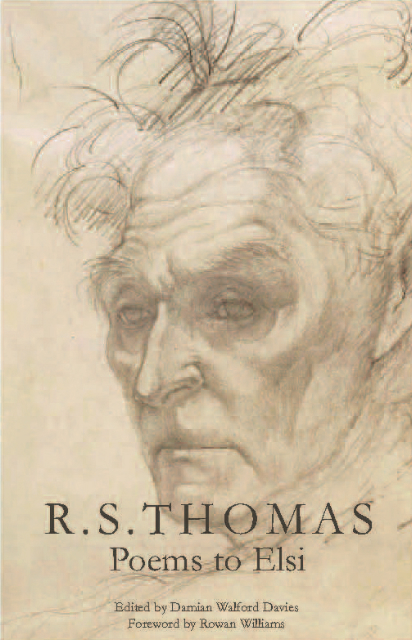 R.S Thomas: Poems to Elsi edited by Damian Walford Davies R.S Thomas: Poems to Elsi edited by Damian Walford DaviesForeword by Rowan Williams Celebrate the R. S Thomas centenary with this excellent volume that draws together 52 poems (4 previously unpublished) by Thomas to his wife, the distinguished artist Mildred E Eldridge - known as Elsi - from early meditations on their relationship to the elegies following her death. This revelatory collection dramatises the changing dynamics of a complex and vitally creative relationship. Poems on marriage, cohabitation, birthdays, anniversaries, family and bereavement offer a candid portrait of emotional intimacy, desire, the painful process of ageing, and of loss. Elsi is a complex presence here: to the 'to' in the title signifies not only 'addressed to' but also 'about', 'with an eye on', 'to be overheard by', and even in one case 'from'. ISBN: 9781781721117 Paperback 9.99 |
| God LovesYou by Kathryn Maris Kathryn Maris borrows rhythms, vocabulary and themes from the Bible in her new Seren collection of poems, God Loves You . The result is more than artful parody, although a sly wit is in evidence. It is an approach that accommodates large themes, unravelling them in new ways. The first section, What will the neighbours think?', is a kaleidoscopic view of the sins and sinners of the modern city and opens, appropriately enough, with a vision of a flood to rival Noahs. The following sections subvert scripture more directly. A mock-prayer opens: My father, who art in heaven,/ sits under an umbrella that is his firmament; a sonnet begins: Kyrie eleison! I said it in the pub. Such burlesque moments mask poignant themes of praise or blame, as well as being funny. ISBN: 9781781720356 Paperback 8.99 |
| The Scattering is a collection of 18 stories, many set on the Irish border, where this London-born author currently lives. These stories explore states of liminality: life on the Irish border, dual identities, emigration, being between states - certainty and doubt, codependency and freedom. Some explore themes of catastrophe and constraint. All explore what it means to be alive in a fraught and ever-changing world. This first collection from prizewinning author and playwright, Jaki McCarrick explores the dark side of human nature, often with a postmodern Ulster gothic twist. ISBN: 9781781720325 Paperback 8.99 |
| Shadow Dispatches by Polly Atkin Winner of the Mslexia pamphlet competition These atmospheric and keenly observational poems offer us a slant perspective on everyday things and events: the ugliness of an elderly mute swan; or a group of migraine sufferers forming a fellowship and holding regular meetings. Poems addressing the complexity of contemporary relationships sit alongside those riffing on traditional themes, even in the case of Hermes Enodios and Potnia Theron revisiting classical gods. These are poems embedded in particular landscapes, in which the real becomes surreal and vice versa. Together they form a poetry which is deeply involved with the natural world concerned with deer in fields and jays in woods but which is not in any way removed, encompassing email, photoshop, and fighter jets. ISBN: 9781781720776 Paperback 5.00 |
Meet the Author
Sunday 24th February 12-3.20pm: Let It Snow . Writing workshops with Anne-Marie Fyfe. Coffee-House Poetry at the Troubadour, Earls Court, London. 28 (concs. 24) all advance booking only, with cheque, please, as workshops/classes are frequently oversubscribed. CoffeeHouse Poetry, PO Box 16210, London, W4 1ZP. Visit the Coffee-House Poetry website for further information: www.coffeehousepoetry.org/
Thursday 7th March 7.30pm-9pm: 'First Thursday' Literary evening combined with music, presenting Stuart Silver on piano and Seren poets Emily Hinshelwood, Paul Henry and Rhian Edwards . Media Point Room Chapter Arts Centre, Cardiff 2.50
Seren Poets at the Stanza Poetry Festival - St Andrews, Fife Wednesday 6th March 8-9.30pm: Curated by Liam Carson , a voyage through Dublin in poetry, music and image. The Byre Theatre, Abbey Street Auditorium 8.00/6.00
Friday 8th March, 11.30am-12.30pm: 'Border Crossings' Christopher Whyte (Crsdean MacIlleBhin) , Robert Minhinnick. The Town Hall, Queens Gardens Supper Room 3.00/2.0
Saturday 9th March, 11.30am-12.30pm: 'Past &Present' Ern Moure on Csar Vallejo, Robert Minhinnick on Dylan Thomas. The Town Hall, Queens Gardens Council Chamber 3.00/2.00
Saturday 9th March, 11.30am-12.30pm: 'Border Crossings' Reading Zo Skoulding , Jean Atkin The Undercroft, St John's House, South Street 3.00/2.00
Saturday 9th March, 5-6pm: Five O'Clock Verses' Reading Deryn Rees-Jones , Alvin Pang The Byre Theatre, Abbey Street Auditorium
Seren staff out of hours
Simon bought Wainwright's Complete Pictorial Guides from an RSPCA charity shop for 5. RRP 159.99. He feels bad for cheating the animals, and because he'll never actually read the books, nor walk in the Lake District. But they do look lovely on his library shelf.
Rebecca has recently completed level one trapeze and is now learning to climb ropes She is currently working on a couple of her own short stories and some new poetry.
Mick caught up with the David Nash exhibition at Kew and was more than impressed by his response to making work in gardens rather than the landscape. It's there until mid April and well worth seeing.
Clancy has spent the last few weeks battling off a cold which is slowly getting the better of her. When she can keep her eyes open she is enjoying the Stephen Poliakoff drama 'Dancing on the Edge' on BBC 2 and finally got round to reading The Girl with the Dragon Tattoo which she absolutely hated!
Amy somehow finds herself taking a GCSE class in Italian on Monday evenings. After four months the verdict of some Italian friends is that her vocabulary is impressive but her grammar requires at least a further four years of study. She has also learned that you must not attempt to translate 'lightbulb jokes' into Italian.
Vicky has been to see Les Miserables twice in the cinema, she loved it even more the second time around and now has the soundtrack playing in her car! She is also counting down the days until the Capital One Cup Final at Wembley on 24th February.
Penny stayed by the fire in January, with the odd chilly beach walk, but is looking forward to stage and screen in Feb - taking her daughter to Les Miserables and going to see an all-female production of Hamlet at the Welsh College of Music and Drama.
Poem of the Month
Welsh Dream TV
Much of the time there is only the silence,
So transient particles glow with significance.
You may experience rippling water
As hope scoured bright by gales,
Or suspect the hail-flak thrashing the roof
Encodes something reassuring.
When the light goes grainy and thin
There is a technical fault,
And sometimes the rays travel too fast,
So the future keeps its promise early
In a brief confetti of supercharged photons.
The heart goes on pulsing its binary message,
The beats and the space that is everything else,
Each printed letter and all the blanks,
Leaves in situ or gone to rot,
Needles of Morse piercing the spume
Blown off a north Atlantic winter.
Welsh Dream TV is transmitting
A feature on perfect felicities.
In the square of a small market town
A spring has dried up temporarily
Out of respect for one recently dead
Who possessed monumental humility.
An auctioneer and three horse dealers
Are explaining how they run things here.
The simple arithmetic of their gestures
Fits its occasions like air round stones
And their smiles are very disarming when they say
Theyre glad youve tuned in to their channel.
From The Welsh Book of the Dead by Douglas Houston
Yesterday I was clipping a laurel bush that has grown massively large when a neighbour stopped to chat. He told me about an altercation he had with someone the day before.
It was a complicated story and Iwas unable to follow it all but, in essence, theother driver signalled incorrectly, confusing the teller of the tale.All we need remember is the aggrieved driver is seventy eight and the other driver was a soldier.
This did not deter the seventy eight year old from following the soldier to his house and making his complaint. Some verbal sparring followed before the soldier told him to learn to drive andwas met with the riposte that he could drive, he'd learnt in the Army.
Using some emotional intelligence, the soldier asked 'Shall we just leave it?'. Then they both shook hands and the day did not end badly after all.
InThe Times todaythe case of the Carmarthen blogger is reported. Briefly, Carmarthen Council has taken offence to the blogger's predilection for filming sessions of the planning committee, using her mobile 'phone.
This is another of those sagas that run and run. Along the way, she has been arrested andreleased.She and the council are embroiled in a wordy battle that looks as though it's going to be costly.
The Times and Derbyshire County Council case established that the State should not sue its citizens and should not pay for its employees to do so. In effect, the blogger, as a taxpayer,is funding the claim against her and is paying for her own defence.
The case concludes today.Judgement will be reserved. I'll watch out for it?
SWANSEA BLITZ

The Swansea Blitz was a heavy and sustained bombing of Swansea by the Luftwaffe of Nazi Germany between the 19–21 February 1941. The Luftwaffe unleashed 1273 high explosive bombs and 56,000 incendiary devices, targeting the port, docks the oil refinery at Llandarcy, ironically the Three Night Blitz left the industrial area virtually unscathed but almost completely obliterated the town centre destroying 857 properties and damaging 11,000. 230 people were killed, 409 were injured.
bb
bb
mm
RICHARD TECWYN WILLIAMS
bb
nn
Born this day 1909, in Abertillery
Richard Tecwyn Williams, who has been described as the founding father of drug metabolism.
Williams was the first scientist to really study how drugs are metabolised in a living body and his book "Detoxication Mechanisms", described as "a marvel of organisation and enlightenment" helped in prescribing drugs to provide the maximum effect and minimum side effects. He was awarded honorary degrees from Paris, Germany and Nigeria. He was a Fellow of the Royal Society and an honorary member of The Mark Twain Society USA.
nn
mm
m
nnkg
ST DAVIDS CATHEDRAL EARTHQUAKE IN 1247
On 20th February 1247 St David's Cathedral suffered earthquake damage.
A History of St David's Cathedral;
6th century - The monastic community was founded by Saint David ( Dewi Sant; c. 500 – c. 589)
Between 645 and 1097, the monastery suffered many attacks, including those by Vikings and several of the Bishops were murdered, including in 999, Bishop Moregenau and in 1080, Bishop Abraham.
c.885 - The cathedral was of such note as both a religious and intellectual centre that Asser, a Welsh monk from St David's was asked by King Alfred the Great to join his court and help rebuild the intellectual life of the Kingdom of Wessex. Asser later wrote a biography of Alfred in 893.
1081 - William the Conquerer visited St David.
1090 - Welsh scholar, Rhigyfarch wrote a Life of St David.
1123 - Pope Calixtus II bestowed a Papal privilege on St David's, making it the object of pilgrimages.
1131 - A new Cathedral was completed.
1171 - King Henry II's visit saw the following of David increase – and the need for a larger Cathedral.
1247 - Reported earthquake damage to the cathedral.
1540 - During The Dissolution of the Monasteries in the reign of Henry VIII, the body of Edmund Tudor, father of Henry VII, was brought to St David's from the dissolved Greyfriars’ Priory in Carmarthen, for reburial.
1649 - 1658 - During the Puritan Commonwealth under Oliver Cromwell, the Cathedral was all but destroyed by Cromwell’s forces, and the lead stripped from the Bishop’s Palace roof.
1793 - The Welsh architect John Nash was commissioned to restore the West Front, to repair the damage done one hundred and fifty years previously.
1862-70 - Within a century the Nash West Front had become unstable, and the whole building was restored by George Gilbert Scott.
1995 - The British Government reinstated the title of "City" to St Davids.
THE GOVERNER FENNER SINKS IN 1841
lll
pp
On 20th February 1841, The Governor Fenner, carrying emigrants to America, sank off Holyhead with the loss of 123 lives. It has been described as one of the most appalling calamities that ever occurred off the shores of Britain.
bbb
BRITAIN'S FIRST POST BUS - LLANIDLOES TO LLANGURIG
mmm
Britain's first Post Bus service was introduced on 20th February 1967. It ran between Llanidloes and Llangurig, North Wales.
Post Buses covered 300 routes at their peak, where they provided a lifeline for isolated communities by combining mail delivery and collection with passenger transport. However recently the services have declined and there are now less than twenty Post Buses remaining.
kk
zzz
vvvll
BORN THIS DAY - MIKE ROBERTS
Born on this day 1946 in St Asaph
Mike Roberts, former Wales international rugby union player, who toured New Zealand with the British and Irish Lions in 1971.
The determination to plough on was only made possible because of the wonderful support, loyalty, faith and not least patience vested in us by you the readers and our contributors.
However, 2013 heralds a new era for us, and the future looks far brighter and more certain than it has done for a long time. We are entering a collaborative partnership with the University of Wales: Trinity St. David, effective from March. Cambria will move on campus, the University are providing a home with the back-up of its infra-structure; the magazine will remain wholly independent as always but supported.
We look forward to being part of, and contributing to, the vision articulated by the inspirational Vice Chancellor, Medwin Hughes, which has created such a feeling of dynamism and renewal over recent years. His belief in Waless institutions in driving change resonates well beyond the world of academia. His passion is welcome in a world so often dulled by corporate blandness. Wales desperately needs such men.
Cambria is proud to become part of the family. As you will see from the article by the Vice Chancellor in the magazine we have many shared beliefs, the ethos of Cambria and our coverage of heritage and arts and current affairs fits immaculately well with the plans of the University. Together we hope to build on these, to our mutual benefit but above all to that of Wales. As Goethe observed, new beginnings have great energy and power.
We are looking forward to a new era for Cambria , a time of growth and development as we continue in our evolution. We will continue to shamelessly promote our national interests, our achievements and our aspirations and will strive to entertain, inform and be thought provoking.
Last autumn saw our fifteenth anniversary, and this is our 73rd issue, many of you I know have every one! Who knows what the future holds, but hand in hand with it I know we will continue to have the strength of your support.
Cambria ! Ymlaen!
Frances Jones-Davies, Editor
.
Celebrate St. Davids Day!
The St Davids Day annual parade in Cardiff will muster from 11.30am for a 12.30pm start, at the Civic Hall and follow the usual route to The Hayes. This year amongst the many will be a posse of Patagonians.
Parades will also be taking place in Colwyn Bay and Wrexham where The Cambria Band will again be a great attraction. Details for these can be found in your local papers or websites.
Support your local parade, a great day out and a visible way of registering the desire to have it made a National Holiday!
Not to be Missed!
A Welsh Journey an exhibition of work by John Uzzell Edwards is showing at St Davids Hall, The Hayes, Cardiff from March 1st to April 24th, 2013
I was married in 1959. Peter was in his second year of teaching and earnedthirty five pounds a month, which could not be called a 'princely sum' by any stretch of the imagination. I did not have a job, having only just arrived in a small town in West Wales.
Our first 'married' task was to sortthe budget.We worked out that in a five week month there was seven pounds a week to juggle. Ashorter month gave useight poundsto splash.
Our rent was two pounds a week andcoal was ten shillings a bag. We had coin metres for the gas and electricityso we could pay-as-we-went. We also paid weeklyfor a rediffusion radio at first, but I forget what that cost.
I decided that three pounds a week would probably buy enough groceries for the two of us and in practise, it did.
I jotted down everythingI had spent when I came home from shopping, to see where the money had gone. (When supermarkets arrived in thesixties it was a relief, because prices could be compared and I knew what things cost before deciding to buy.)
The Sunday jointpresented a difficulty for me. I would ask fora small joint but always ended up with one that lasted us for four meals.My culinary imaginationwas tested to the limit. On a Sunday wehad a roast, Monday we ate the meat cold, with boiled potatoes, peas and a bottled sauce. Tuesday waspie day and on Wednesday I threw the remainsinto the cawl pot and breathed a sigh of relief.
(My daughters thinkI was lucky it lasted so longbecause meat disappears quickly in their houses.)
The topic for this blog was inspired by some recent research that says two people can save at least a hundred pounds a month by living together, sharing the bills.
Co-incidentallyIreada 1935 magazine earlier today and saw anarticle on household economy. I should have guessed thatthe main culprits for wasting money were the maids, who were lavishwith thecleaning materials, expecially scouring powder. Elbow grease would have done just as well and saved a lot of money!
In North Wales, we have experienced high pressure weather conditions over the last couple of days which has brought sunshine and great visibility. This has allowed the full majesty of the Northern Snowdonia scenery to be appreciated.
Similar images to be found at http://www.thesnowdonian.com
On 19th February 1881, Wales played their first ever rugby international, against England at Blackheath’s, Richardson ’s Field.
The game is noted for it's chaotic organisation and it didn't help that the RFU insisted that the match was played on the same day that Swansea were playing Llanelli in a semi-final cup-tie thus depriving Wales of several players. The players had never played together before and one player, Major Richard Summers from Haverfordwest was selected on the performances for his school.
As no formal invitations to play were sent out, two of those expected to play didn't turn up and two bystanders, with tenuous Welsh links were roped in to play, so the final team that took to the pitch consisted of 8 Welshmen, 4 Englishmen, 2 Irishmen and an Australian.
Major Summers described the playing kit as being light walking boots, high-necked jerseys and buttoned blue knickers. The changing rooms were in a pub and the teams had to walk half a mile to game, before which, rumour has it that the Welsh team had been drinking heavily.
Needless to say, the Welsh team lost heavily, 82-0 under modern scoring values. It could have been worse as England had a try disallowed when England captain Lennard Stokes put Hunt in for a score by throwing a colossal pass, the umpires deciding that a long pass was not fair play.
The Welsh connection to Kellogg's Corn Flakes;
Kellogg's was founded as the Battle Creek Toasted Corn Flake Company on February 19th 1906, by Will Keith Kellogg.
On one of her overseas trips in 1922, Nansi Richards, the internationally acclaimed Welsh harpist, visited the home of Will Kellogg, who was looking for a marketing idea for his cornflakes. It is said that Nansi suggested a pun on the name Kellogg and the Welsh word "ceiliog", meaning "cockerel". Will Kellogg liked the idea and Cornelius Rooster was born and has appeared on packs of Kellogg's Corn Flakes ever since.
Born this day 1942, in Cardiff
Sir Howard Stringer, Chairman of the Board and former CEO of Sony Corporation.
After graduating from Oxford University, he moved to the United States, where after six weeks he was draughted into the United States Army and served in the Vietnam War. Afterwards he joined CBS and rose from a job answering backstage phones for The Ed Sullivan Show to become president, during which time he won nine Emmys. In 1997, he joined Sony and in 2005, was appointed as chairman and CEO.
Born this day 1906, in Barry
Grace Williams, who is regarded as one of Wales' most important composers.
Williams was a pupil at the Royal College of Music and at Wellesz in Vienna. She wrote mostly orchestral and choral music and early in her career was influenced by Vaughan Williams and Elgar. She is best known for her orchestral Fantasy on Welsh Nursery Tunes (1940) and Sea Sketches (1944) and became the first British woman to score a feature film, with Blue Scar. In 1966, she turned down an offer of the OBE for her services to music.
On 19th February 1766, Thomas Kymer was granted an Act of Parliament allowing him to construct the Kidwelly and Llanelli Canal.
The Kidwelly and Llanelli Canal with an adjoining tramroad was, built to carry anthracite coal from Little Gwendraeth River, near Kidwely to the coast for onward transportation. It originally linked pits at Pwll y Llygod, near Trimsaran, to a dock near Kidwelly, but as the entrance to the dock was subject to silting, an extension of the canal to Llanelli was authorised in 1812.
Clement Edward Davies - leader of the Liberal Party from 1945 to 1956.
On 19th February 2011, the first public passenger train operated between Caernarfon and Porthmadog Harbour over the restored Welsh Highland Railway.
The Welsh Highland Railway or Rheilffordd Eryri is a 25-mile long restored narrow gauge heritage railway which passes through Beddgelert and the Aberglaslyn Pass.
The original Welsh Highland Railway was formed in 1922 as a replacement for the horse pulled Croesor Tramway which had run from Porthmadog since 1863 up into the Croesor Valley and the slate quarries in the area. It closed in 1933 as its carriages were outdated and uncomfortable and the service had a reputation for being unreliable.
On 19th February 2013, the sky above the Brecon Beacons National Park became the first area in Wales and only the fifth in the World to be granted the status of international dark sky reserve by the International Dark-Sky Association.
In a Word
Our lives begin and end with a word.
I do, I will, I promise, I give. Amen.
The Greeks would know whatI mean:
Beginning and end. Alpha and Omega.
Crystal and clear. Nothing absurd.
Life is a quest for words plucked from time.
I love, you love, he, she, it loves.
Only words will spell you what I mean,
Something simple, Amo, Amas, Amat.
A mixture from another tongue
Andlife goes on because of that.

